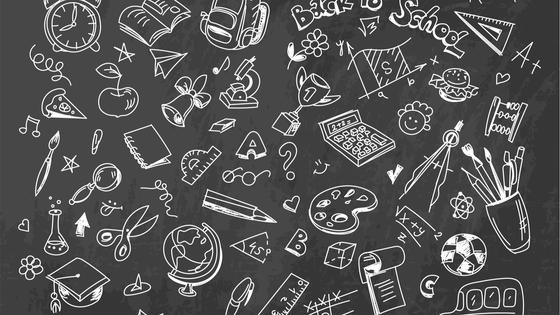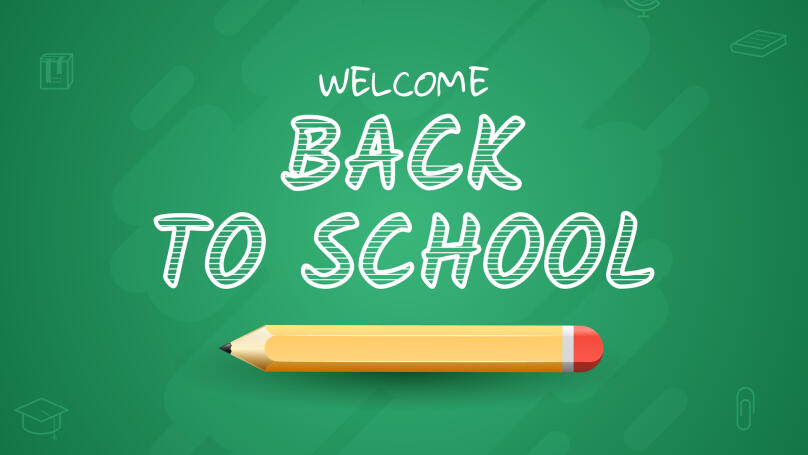September the 1st? How to study without self-harm and texting?
It is September the 1st. It is a solemn day when children are marching past with white collars and backpacks, and you can hear music and the cheerful clamor from the schools.

So many of us would gladly return to those days when September the 1st marked the beginning of the school year because you don't have school breaks or deadlines when you study as a grown-up. You should constantly study, so you are not sidelined in the job market by your competitors. And this, I must say, is much more difficult than it was during your school days.
One of the most common questions I receive as a mentor is how to study every day and not hate the learning process. After all, while children can focus solely on gaining knowledge, an adult has to combine this with a 9-to-5 job, taking care of their family and hobbies while trying to fit in some rest. So, since today is Knowledge Day, I decided to devote my article specifically to the skill of self-study because I always highlight how important and indispensable it really is. But unfortunately, many still neglect self-study or know how to organize it properly. So, I will share with you some of my tips.
Tip #1. Say yes or no to learning
I hope you realize that you cannot learn everything at once. Making sure that your brain does not melt down, it is crucial to properly spread your energy and focus on what is important to you now. In the book "Essentialism," which I love and respect, Greg McKeon offers a radical way to decide what matters and what does not when in doubt.
This method is as follows: if you cannot say an unequivocal "yes, I need this" to something, then it is an absolute "no." This includes areas, skills, and activities that do not give you a 100% positive response or an understanding of their importance. Then it must be eliminated without hesitation. So, it is either an absolute yes or a simple no. Try it! This works. Your schedule will be clear, you will have more free time and energy, and you will find your learning efficiency will also increase.
Tip #2. Get creative with your workspace
Do you have portraits of your idols or motivational quotes hanging above your desk? Yes? Then take them down immediately! Why do you need them? After all, we are not motivated by beautiful faces and philosophical aphorisms but by results. Instead, replace the portrait above your desk with a short paragraph from your hero's autobiography about how they overcame adversity, or hang a photo of a scientific project from a scientist you admire. It could also be a bright collage of something representing a personal outcome. However, nothing abstract - only specifics. Even better if it is numbers or statistics!
Likewise, do not be afraid to leave your house and study elsewhere. I do know people whose productivity turns on only in their home office. However, for example, I find it much easier to study when traveling. I learn and remember more in just one five-hour flight on a plane than in a day spent at a computer with lectures. Each to their own! If you are tired of home study, try reading in a park or, maybe, in your bathtub.
Tip #3. Start anywhere

We are taught from childhood to be consistent. This is vital in the learning process, but not when you are experiencing concentration problems or are unwilling to continue learning. So, study topics in succession, one topic at a time, allow yourself some "wiggle room," and re-route. After all, you probably, are just like me and aware of the fear of a "blank slate" when you look at a blank page of your essay or a large amount of text and do not know how to approach it. This is how - try to start not just from the beginning but from the middle or any part that catches your eye.
In the process, you will still have to go back to the beginning and then to the end, gathering any text, and doing it in parts, like with knowledge. The main thing is to build it into a clear sequence and structure and then fine-tune them.
Tip #4. Try the Feynman Method
Richard Feynman is a famous American physicist who experienced learning problems until he developed his educational system. It has three parts:
-
Read and retell. Retell it as simply as possible, as if you were explaining the same subject to a child. In this way, you describe complex material to yourself, and then it sticks in your memory. Better do it aloud.
-
Repeat. No knowledge is immediately rooted and does not turn into a skill. Therefore, repeating what has been learned several times a week for a month or even two is worthwhile. It is also advisable to support this knowledge in real life and apply it at work.
-
Simplify. Choose the easiest courses, the most straightforward books, like they say, "for Dummies," and watch YouTube videos where everything is explained in as primitive a language as possible. Again, the simpler, the better. After all, the key is to benefit and not to shine.
Tip # 5: Give knowledge a unique value
Psychologist Helen Langer conducted an interesting experiment: she divided her students into two groups and let them read the same text. The first group's task was simply to study it, and the second group had to find meaning in it. As a result, the students in the second group absorbed the actual text better. Moreover, they remembered it even after several weeks, while the first group could not even remember what it was about.
Therefore, I will never stop reminding you that you only need knowledge that makes sense to you, which you can use in practice! Why do you need theory if it broadens your horizons but provides no fundamental skills for moving up the career ladder or making money? In addition, you become tremendously motivated when you see that your learning is working and giving you real and tangible results that can be measured. Finally, remember that knowledge needs to be applied as often and early as possible.
Start actively working with the latest information immediately. For example, learn sales techniques, and then at work, start trying them out on customers even if you are worried that it will not work, even if it feels like you are not ready. Provide yourself with "field conditions" and give your new knowledge real value so that it brings you success. Then self-study will not be a heavy burden for you but a way to become more knowledgeable and richer. Not only does the school year starts on September the 1st for your children and other schoolchildren, but also your journey to your dreams!
Share this with your friends via:
Latest News

A significant stage in the development of the alternative education system has begun in West Northamptonshire in the UK: the County Council is actively calling on parents, guardians, and trustees to participate in shaping the future of this key area.

Outwoods Primary School in Atherstone, Warwickshire, having experienced deep sadness after the loss of their famous cat, Silla, has found solace in a new pet – a Maine Coon named Aloysius O’Hara.

In modern universities, artificial intelligence, and in particular ChatGPT, is rapidly transforming from a controversial tool into a full-fledged student assistant.

An innovative educational project is gaining momentum in UK primary schools, aiming to change attitudes towards video games.

The Massachusetts Institute of Technology (MIT) presents MIT Learn – a revolutionary online platform that opens a “new front door” to access university knowledge and resources.












 Test: How Psychologically Mature Are You? Check Your Inner Foundation.
Test: How Psychologically Mature Are You? Check Your Inner Foundation.
 Test. Check Your Social Media Dependency Level!
Test. Check Your Social Media Dependency Level!
 Test: What Business is Right For You?
Test: What Business is Right For You?
 Test: How Prone Are You to Abusive Behavior as a Manager?
Test: How Prone Are You to Abusive Behavior as a Manager?
 Test. What superpower would you possess if you were a superhero?
Test. What superpower would you possess if you were a superhero?
 Test. What Should You Let Go of Before Winter Ends?
Test. What Should You Let Go of Before Winter Ends?
